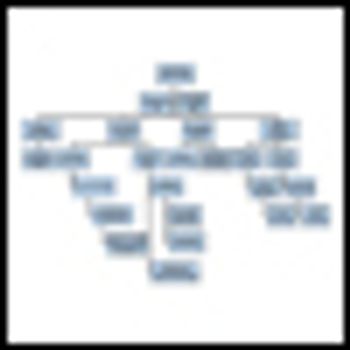Antonio C. Wolff, MD, FACP
Articles by Antonio C. Wolff, MD, FACP

Clinicians and bioinformatics experts must learn to speak the same language, starting with basic principles regarding analytical validity, clinical validity, and clinical utility. More than ever, a true partnership between clinical, laboratory, and bioinformatics scientists as part of a multidisciplinary team is needed to benefit our patients.

To kick off SABCS 2012, we discuss the use of molecular testing for the diagnosis and treatment of breast cancer patients in the clinical setting with Dr. Antonio Wolff of the Kimmel Cancer Center at Johns Hopkins University, one of the presenter's during the "Practical Use of Molecular Profiling" session at this year's symposium.

Breast cancer is a significant global health issue: An updated analysis by the International Agency for Research on Cancer estimated that there were 1.38 million new breast cancer cases diagnosed in 2008 and confirmed that it remains the most frequent cause of cancer death in women worldwide.

The management of breast cancer in women under the age of 40 continues to challenge oncologists despite many recent therapeutic advances. The higher rates of breast cancer recurrence and death in this cohort strongly correlate with unfavorable clinicopathologic features

Based on the 1995 Early Breast Cancer Trialists’ Collaborative Group (EBCTCG) Overview, tamoxifen is now the standard of care for premenopausal women with hormone receptor–positive early breast cancers.[1]

Novel agents are adding to the wide choices of standard chemotherapies already available. This review offers an approach to the selection of individualized and rational therapies for patients with metastatic breast cancer.

The majority of invasive breast cancer patients present with hormone receptor-positive disease, and modulation of estrogen receptor (ER) activation is an essential component of systemic adjuvant therapy for these women. While tamoxifen has traditionally been the primary adjuvant endocrine therapy for all ER-positive women, recent trials evaluating the use of aromatase inhibitors (AIs) have challenged this standard in postmenopausal women, and ongoing trials are examining the optimal use of endocrine therapy in younger women. Issues regarding the optimal approach to endocrine therapy in both pre- and postmenopausal women are examined in this review.

Over a 30-year period in the20th century, human flightevolved from the propeller tothe jet engine and then managed tosend us to the moon and back. Thechanges over the past 30 years in ourunderstanding of the biology of breastcancer and its application to treatmentare no less startling. Since 1975, wehave witnessed an astounding evolutionin our strategies to prevent,[1]diagnose,[2] and manage[3] a diseasethat affects the lives of so many in theUnited States[4] and around theworld.[5] These efforts have generatedmany headlines and an occasionalstumble. Nonetheless, they have hada dramatic impact on the lives of millionsof people, and it is hoped thatthe rate of improvement will furtheraccelerate in years to come.

Our understanding of the biologyof breast cancer has undoubtedlyimproved in the pastdecade, and remarkable progress hasbeen achieved in its treatment. Thosecaring for these patients have longrealized that breast cancer is a diseasewith an extremely diverse natural history,and much remains to be learnedabout the interaction among knownpredictive and prognostic factors. Notlong ago, the “more is better” strategyexemplified by high-dose chemotherapy(often resulting in high-dose toxicity)dominated the research agendaand clinical practices of many institutions.Although a minimum chemotherapydose intensity is required[1]and increasing the frequency of specificregimens is advantageous,[2] furtherdose intensification with[3] orwithout stem cell rescue[4-6] offersno meaningful benefit in the adjuvantsetting.

The book Progress in Anti-Cancer Chemotherapy, Volume II is the second of a series of three books edited by Drs. Hortobagyi and Khayat, and published by different publishing houses between 1998 and 1999. Volume II is a collection of

For many oncologists and their patients with metastatic breast cancer, these are quite confusing times. A growing body of evidence suggests that pure dose-escalation strategies of high-dose chemotherapy with stem-cell support are unlikely to provide much additional benefit in patients with advanced breast cancer.[1] In fact, selection bias may explain much of the potential benefit seen in so many single-arm high-dose chemotherapy studies.[2]





